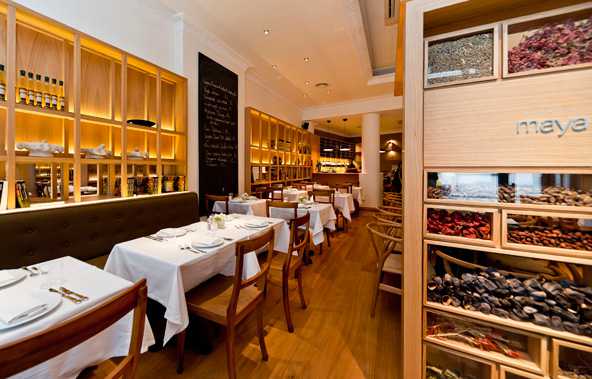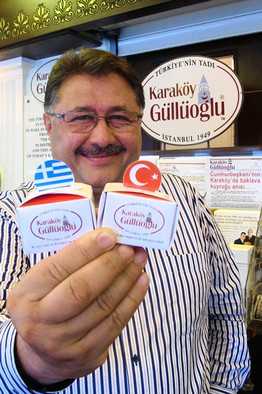Among the world’s great kitchens, Turkish cooking may be more mauled than even Mexican when cooked off its home turf. Nearly every major city in the world has a mediocre kebab stand that is a sad substitute for the brilliantly regional cuisines of Turkey. This is why I always show up in Istanbul with a carefully plotted meal plan — the dearth of really good Turkish restaurants outside of Turkey means there are just so many dishes I don’t want to miss eating again before I go home.

Photographs by Orhan Cem CetinThe dining room at chef Didem Senol’s Istanbul restaurant Lokanta Maya.
Most of the places on my standing list, including Zubeyir Ocakbaþy (Bekar Sokak 28; 011-90-212-293-3951), Ciya Sofrasi (Caferaga Mah Guneslibache Sk. No.43; 011-90-261-330-3190) and Hunkar (Mim Kemal Öke Caddesi 21; 011-90-212-225-4665), are simple spots serving terrific traditional Turkish food. (Hunkar actually specializes in Ottoman cooking.). But since the city’s restaurant scene has boomed — a reflection of the thriving Turkish economy — several local chefs have opened up places that serve inventive contemporary Turkish cooking to sophisticated younger Istanbulers who want food that’s local but light and healthy and offered up in a stylish setting. Many of these new takes on the Turkish kitchen are unfortunately also pricey, tourist-oriented spots where you’re paying a premium for a view.
The white bean salad at Lokanta Maya.
A year ago, however, the chef Didem Senol, who studied at New York’s French Culinary Institute, opened Lokanta Maya (Kemankes Caddesi No.35/A; 011-90-212-252-6884), a strikingly good-looking contemporary Turkish table in the Karakoy neighborhood. It’s since become not only one of the hippest and most popular spots in town but a delicious template for a new style of Istanbul restaurant, one with an indigenous but modern menu, excellent service and seriously good food. Eager to try it on a recent trip, I could only score a seat at the service bar on a busy Friday night — putting me more or less in the staff’s way — but a terrific waiter nonetheless took the time to explain the entire menu. It’s an appealing mix of Turkish and eastern Mediterranean dishes mostly made with organic produce and showcasing Senol’s vast knowledge of regional Turkish cuisine and her passion for the cooking of the Aegean coast.
My meal began with Cypriot halloumi cheese grilled inside of grape leaves and served with a garden chutney of sliced scallions, crushed roasted hazelnuts, cucumber and tomato. Next, crispy golden zucchini fritters came cooked in hazelnut oil and served with minted yogurt dip. Both starters were excellent, and during the pause that proceeded my main course I sipped a pleasant Turkish Umurbey sauvignon blanc by the glass and watched the restaurant fill up with a handsome, mostly local crowd who filled the Danish-modern-inspired tables and eyeballed the wall covering of walnuts inside of chicken wire. When it arrived, my slow-roasted lamb was succulent, spoon tender and served on bed of rice pilaf bright with sumac berries, currants, Turkish cranberries and pine nuts.
Concluding with a mastic-gum pudding under a red-berry coulis, I couldn’t help but think that if the New York restaurateur Danny Meyer were to do a Turkish restaurant it would look and taste a lot like Lokanta Maya. I liked this place so much, in fact, that I wasn’t disappointed the following night when Turkish friends picked me up to take me to a wonderful new restaurant for dinner and, well, guess where I ended up? This time I got to try the caramelized sea bass with oranges that I’d been eyeing as a main course when the waiter suggested the lamb. As it turns out, both are superb.
via Eurofile | Istanbul’s Latest Hot Table – NYTimes.com.





